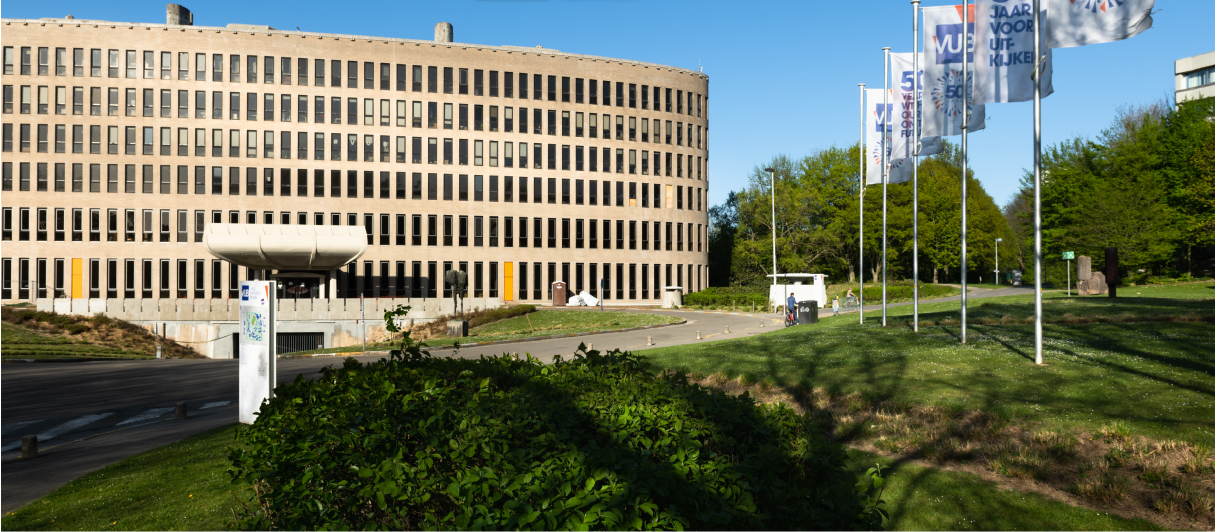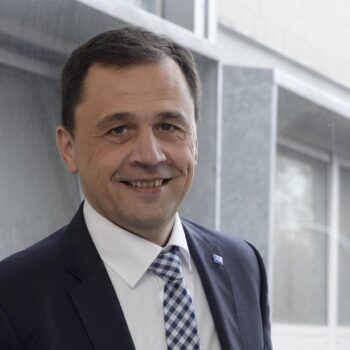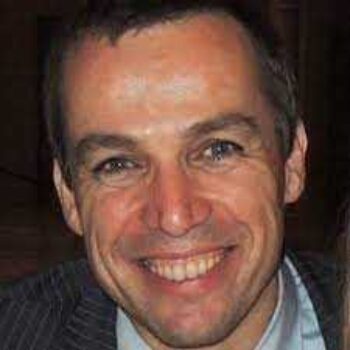Jobs - Senior researcher Earth Climate Observatory (VUB - ROB)

Job Opening - Senior Researcher Earth Climate Observatory (VUB - ROB)
Vrije Universiteit Brussel (B-PHOT) & the Royal Observatory of Belgium (ROB) are looking for a senior Researcher in the context of the FED-tWIN programme, a federal research programme of the Belgian Science Policy (Belspo), aiming to create a sustainable long-term cooperation between the Federal Scientific Institutions and the Belgian Universities through the funding of joint research profiles.
This is a full-time position combining a half-time position at the Royal Observatory of Belgium (ROB), and a half-time position at the Vrije Universiteit Brussel (VUB). The general theme of this research profile - the "Earth Climate Observatory" (ECO) research profile - is to develop a new space mission for the measurement of the Earth's Energy Imbalance through innovative optical and thermal instruments with high accuracy and
stability.
The FED-tWIN researcher who will be recruited in this context is expected to create a dedicated research niche focused on the ECO space mission and to build and supervise an inter-institutional research group around this space mission.
Application deadline: 15 January 2024
Position Description
Area
ECO: Earth Climate Observatory - towards a new space mission to monitor the Earth's energy imbalance (Research profile Prf-2022-010 ECO between ROB and VUB)
Research
Climate change is one of the major challenges of our time. The most essential of all change agents is the so-called Earth Energy Imbalance (EEI). EEI is the direct cause of global temperature rise. Its accurate measurement and monitoring is necessary to ensure that the Paris Climate Agreement and the European Green Deal are implemented fast enough to prevent catastrophic climate change by keeping the global temperature rise below 2 °C.
The FED-tWIN researcher will continue to work on a recently completed joint KSB-VUB PhD research, in which the conceptual design of new space instruments for the measurement of the EEI was made. These conceptual new space instruments are a wide-angle radiometer, a wide-angle camera operating in the visible part of the electromagnetic spectrum and a wide-angle camera operating in the thermal infrared part of the electromagnetic spectrum.
The researcher will be responsible for the further refinement of the design for fabrication of the instruments, and for the long-term scientific support of the concrete implementation of the ECO space mission in cooperation with various stakeholders such as funding governments, the European space agency ESA, the European space industry, and the international scientific community. In doing so, the focus will gradually shift from instrumentation to data processing over a 10-year period.
The FED-tWIN researcher is expected to:
- publish in peer-reviewed scientific journals belonging to the Q1 quartile with high impact factor;
- acquire funding for operation and research activities using various funding channels;
- build a ROB-VUB research team on advanced space optics for Earth observation and climate monitoring;
- take responsibility to ensure the international reputation of the new research team.
The FED-tWIN researcher will be part of the Operational Direction "Solar Physics and Space Weather" of the ROB for 50% and of the Department of Applied Physics and Photonics (TONA), research group B-PHOT Brussels Photonics within the Faculty of Engineering of the VUB, also for 50%.
Education
The FED-tWIN researcher contributes to the education of the Department of Applied Physics and Photonics (TONA). In view of the research objectives of the FED-tWIN mandate, teaching activities will be limited during the first 5 years of the mandate. The FED-tWIN researcher can contribute to teaching in the VUB Master of Science program: Master of Science in Photonics Engineering in the field of optical design and photonic systems for a total maximum of 6 ECTS per semester.
The FED-tWIN researcher is also supposed to supervise master's theses and PhDs related to the research to be conducted.
Others
The FED-tWIN researcher is expected to contribute to the internal and external services of both institutions and to the valorization and communication of research results.
Profile
The candidate FED-tWIN researcher holds a PhD in Sciences or in Engineering Sciences, or a degree or certificate recognized as equivalent. When assessing a non-Benelux degree, an equivalence certificate must be requested from NARIC (more information). We advise the candidate, if applicable, to start the recognition procedure at NARIC as soon as possible.
The candidate FED-tWIN researcher obtained this PhD up to 12 years prior to the predetermined submission date of his/her candidature file. This period is extended by 1 year for any absence due to pregnancy, parental or adoption leave, as well as any prolonged absence due to illness of the candidate himself and/or a first-degree relative.
In addition, the candidate ideally has:
- a field of specialization situated in photonics, optical design, optical instrument fabrication, data analysis, product development, multiphysics modellingor in an other domain that is close to the ECO space mission;
- carried out high-level scientific research, as substantiated by publications in peer-reviewed international journals;
- demonstrable experience in securing external funding for research or innovation projects;
- knowledge of the latest simulation and manufacturing methods of advanced optical systems, such as those using freeform optics;
- knowledge of advanced data processing methods and programming experience (in C++ and/or Python);
- proven experience in leadership;
- experience in teaching at university level, and in supervising students at master's and doctoral level;
Are recommended:
- 3 years of postgraduate experience at the time of recruitment – the 3 years of experience is determined based on the date mentioned on the diploma requested above;
- knowledge of or experience in atmospheric radiation transfer and/or climate research;
- experience with space projects;
- experience of working in an international research consortium;
- communication skills in English and Dutch. Candidates without knowledge of Dutch must achieve a C1 Dutch qualification certificate within five years from the start of the mandate.
The FED-tWIN researcher is expected to endorse the university's vision and values.
Every first appointment is dependent upon the successful delivery of a teaching session.
Language regulations
A member of the academic staff who is entrusted with a teaching assignment must also be able to demonstrate that the language of instruction is known at ERK level C1 through a qualification certificate or an adequate diploma. The VUB also provides courses in, for example, academic English.
The administrative language of the VUB is Dutch. In case of insufficient knowledge of Dutch, the VUB will provide an integration course. After a maximum of five years, a member of the academic staff must demonstrate adequate knowledge of the administrative language (ERK
level B2).
For a complete overview, please consult the complete language regulations here.
Certificates demonstrating knowledge of the language can already be added to the application.
Offer
We offer a full-time senior research position for an initial period of 5 years, renewable for 2 years terms of 5 years after positive evaluation, with an expected starting date of the employment on 01/04/2024. The appointment takes place in the form of two half-time contracts at the Royal Observatory of Belgium and Vrije Universiteit Brussel respectively.
At the ROB, the 50% appointment takes place at SW2 level (senior researcher) with a contract of indefinite duration.
At the VUB, the candidate is appointed as a 50% ZAP lecturer (bar scale 600) with a temporary appointment for a period of five years, renewable after positive evaluation.
Interested?
Is this the job you’ve been dreaming of? Send us ONLINE and at the latest on 15-01-2024:
- a short CV;
- a short motivation for the application including a vision on the future research, the academic independence, the experience with research management, the
management of a project portfolio and the guidance of PhD students (max 2 A4 pages); - an academic dossier with all relevant elements;
- a well-argued vision on research & education with mentioning of the five most important publications related to this research profile;
- a copy of the relevant diplomas (master's and PhD).
For more information about this job opening, please contact:
- Steven Dewitte (steven.dewitte@oma.be)
- Francis Berghmans (francis.berghmans@vub.be)
Apply before 15 January 2024
Contact
About VUB
For already 50 years, the Vrije Universiteit Brussel has stood for freedom, equality and connectedness. These values are strongly present on our campuses, in our students as well as our staff. At the VUB, you’ll find a diverse collection of personalities: pure innovators, but especially people who are 100% their authentic selves. With about 3,500 employees, we are the largest Flemish-speaking employer in Brussels, an international city with which we are all too happy to be affiliated and around which our four campuses are located.
Our education and research are grounded in the principles of free research with an eye on human progress. We disapprove of every purely authoritative argument and guarantee the free formation of judgement that is necessary for this basic principle to be incorporated in the community. The VUB is autonomous and managed democratically. As such, we guarantee fundamental freedoms within our university, as well as the right of the university community to be involved in making and checking university policy.
The host research group at the VUB is "Brussels Photonics" (B-PHOT), part of the Department of Applied Physics and Photonics (TONA) of the Faculty of Engineering. The core activities of this research group are articulated around "photonics" - the science and technology of light - which is an essential digital technology of the 21st century and the key technology that uses the unique properties of light for peaceful purposes. B-PHOT has a unique research and innovation centre at VUB's Photonics Campus Gooik. B-PHOT unites a critical mass of 70 highly trained researchers and technology experts, providing research, innovation and STEM education, and connecting photonics with other scientific and engineering disciplines. B-PHOT addresses current and future global challenges in various sectors thanks to photonics: climate, biomedical engineering, industry 4.0, "agrifood", information and communication, mobility, sustainability and smart cities.

About ROB
The Royal Observatory of Belgium (ROB) was founded in 1826, before the independence of Belgium. It is a Federal Scientific Institution (FWI) belonging to the Belgian Science Policy ("Belspo"). Researchers at the ROB study planet Earth, the sun as well as other objects from the near and far universe. Among the scientific disciplines of the ROB we may find astronomy, planetology, geophysics, seismology, space geodesy and solar physics. For these, the ROB cooperates with numerous international centers.
At ROB, the ECO FED-tWIN researcher will work in the Operational Directorate (OD) "Solar Physics and Space Weather". This OD has about 50 staff on a full-time equivalent basis and has activities around solar observation from Earth, amongst others through the world data center for long-term sunspot observation, through the space missions Proba 2, EUI on Solar Orbiter and Proba 3, and through space weather services operating under the umbrella of the European Space Agency (ESA) and the International Civil Aviation Organization (ICAO).



